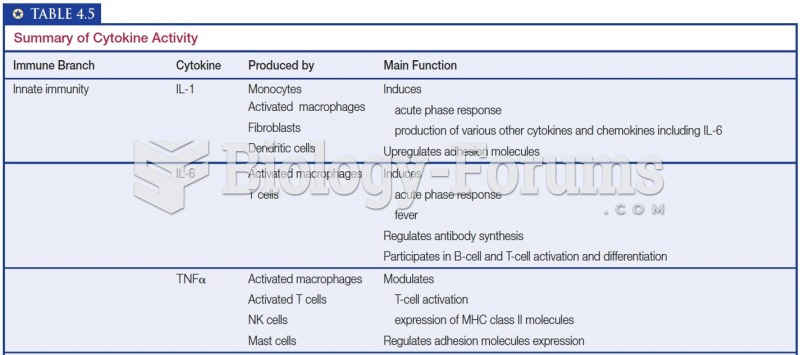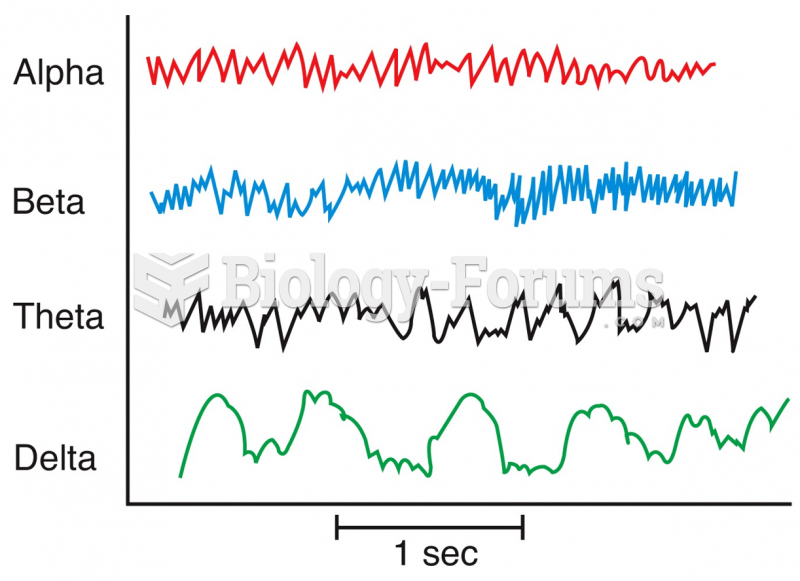|
|
|
More than 4.4billion prescriptions were dispensed within the United States in 2016.
When Gabriel Fahrenheit invented the first mercury thermometer, he called "zero degrees" the lowest temperature he was able to attain with a mixture of ice and salt. For the upper point of his scale, he used 96°, which he measured as normal human body temperature (we know it to be 98.6° today because of more accurate thermometers).
In the United States, there is a birth every 8 seconds, according to the U.S. Census Bureau's Population Clock.
The oldest recorded age was 122. Madame Jeanne Calment was born in France in 1875 and died in 1997. She was a vegetarian and loved olive oil, port wine, and chocolate.
When blood is exposed to air, it clots. Heparin allows the blood to come in direct contact with air without clotting.






